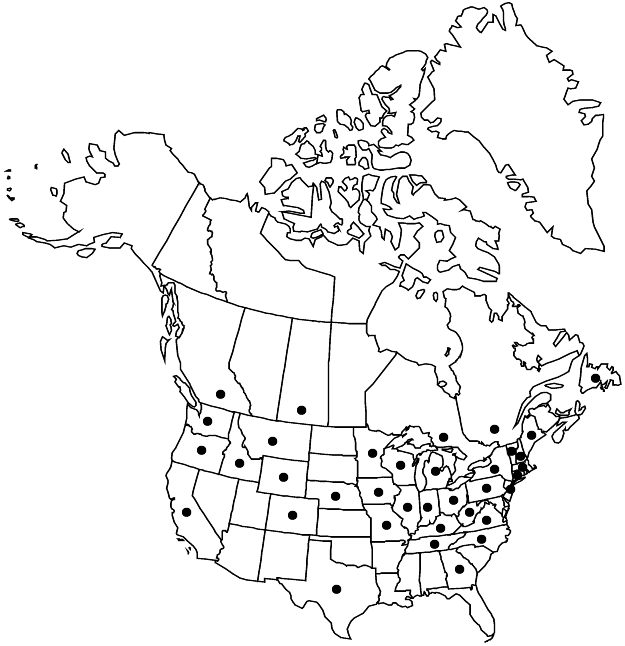Silene dichotoma subsp. dichotoma
Plants annual, robust; taproot slender. Stems erect, branched distally, usually reddish, (20–)50–100 cm, coarsely hispid. Leaves 2 per node; proximal petiolate, blade lanceolate-spatulate, 3–10 cm × 6–30 mm (including petiole), base tapering into petiole as long as lamina; cauline sessile or nearly so, smaller distally, blade lanceolate-cuneate, 1.5–5 cm × 3–15 mm, apex acute, hispid on both surfaces. Inflorescences with many ascending, elongate branches, many-flowered, open, setose, glandular or not but not viscid; flowers 1 per node; bracts ranging from resembling leaves to narrowly lanceolate, 5–10 mm, apex caudate-acuminate. Flowers subsessile; calyx prominently 10-veined, not inflated, setose, lobed, tubular in flower, ovoid and (7–)10–15 × 2.5–4 mm in fruit, veins parallel, with pale commissures; lobes 5, spreading to recurved, narrowly lanceolate, 2–3 mm, apex acuminate; petals white, rarely pink, clawed, claw equaling calyx, limb obovate but deeply 2-lobed, 5–9 mm, apex truncate, appendages 0.2 mm; stamens exceeding petals, reduced to staminodes in some flowers; filaments white; styles 3, white, ca. 2 times calyx. Capsules enclosed in calyx, ellipsoid, opening by 6 spreading, lanceolate teeth; carpophore stout, 1.5–4 mm, glabrous. Seeds grayish brown to black, broadly reniform with concave faces, ca. 1 mm diam., rugose. 2n = 24.
Phenology: Flowering summer.
Habitat: Cultivated land, roadsides, burnt clearings in forests, disturbed prairies
Elevation: 0-2200 m
Distribution

B.C., Nfld. and Labr. (Nfld.), Ont., Que., Sask., Calif., Colo., Conn., Ga., Idaho, Ill., Ind., Iowa, Ky., Maine, Mass., Mich., Minn., Mo., Mont., Nebr., N.H., N.J., N.Y., N.C., Ohio, Oreg., Pa., Tenn., Tex., Vt., Va., Wash., W.Va., Wis., Wyo., Europe.
Discussion
Subspecies dichotoma is an occasional adventive weed.
Selected References
None.